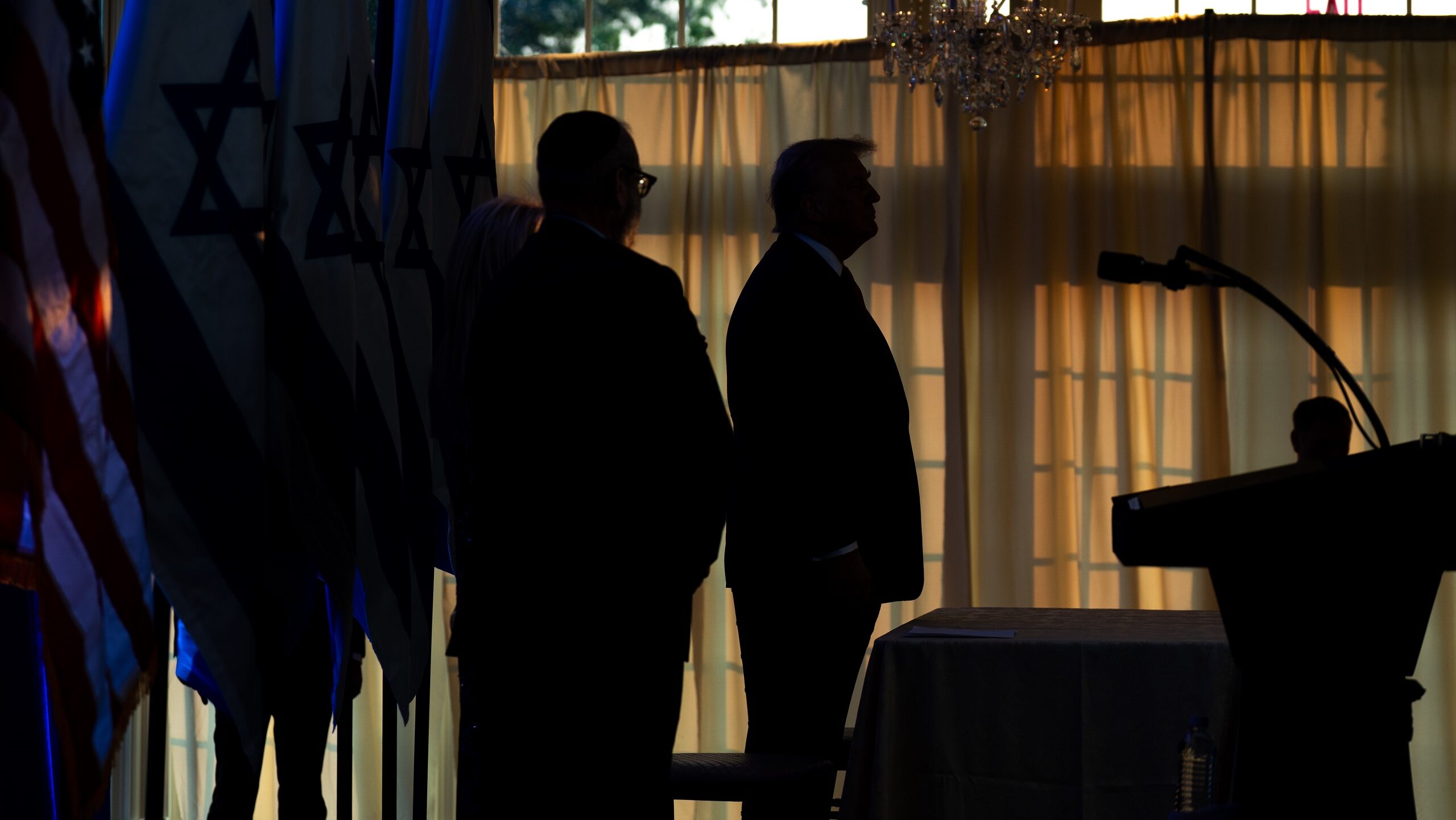President-elect Trump, as Jews Are Hiding Jewishness, Make America Safe Again
Global trends show alarming spikes in antisemitic incidents, and even in the United States, the Jewish community faces unprecedented challenges to its identity and safety
The glory of the United States should always be measured by its ability to provide liberty and justice for all.
“Don’t wear your Star of David, hide your skullcap under a baseball cap, avoid using your Hebrew name, and stay away from large gatherings.” Such warnings have sadly become common in the American Jewish community, even as colleges, universities, and major organizations attempt to embrace Jewish identity publicly.
In November 2023, a survey by Jewish student organization Hillel International revealed that one in three students felt the need to hide their Jewishness. That same month, the Jewish Federations of North America reported that nearly 90% of American Jews believed antisemitism had increased over the past five years.
Some synagogues operate discreetly behind closed doors, with full-time security teams employed. One Chicago temple resembles many synagogues abroad, where events are regularly held behind high walls, enabling the community to keep a low profile.
A recent event I attended in New York City with Israel-related ties exemplified these precautions: Its location was not advertised online, and no signage indicated its purpose at the hotel venue.
In certain cities, Jewish residents have removed mezuzahs—the parchments inscribed with biblical verses—from their doorposts. Others use fake names when booking rides with services like Uber.
Tragically, these acts illustrate a global explosion of Jew-hatred, which has simmered for years but now feels inescapably present.
In 2021, Aaron Keyak, now the deputy special envoy to monitor and combat antisemitism at the State Department, tweeted, “If you fear for your life or physical safety take off your kippah and hide your magen david [Star of David].” His words reflected a grim reality shaped by rising incidents, such as the 2018 Tree of Life Synagogue shooting in Pittsburgh that left 11 dead and six injured.
Antisemitic violence on college campuses continues now for a second year, as illustrated recently at DePaul University in Chicago, where two students were attacked. One, an Israeli soldier, had responded to the October 7, 2023 Hamas attacks on southern Israel.
Public displays of hostility and malevolent behavior against Jews have become a daily occurrence, echoing historical patterns of persecution.
In northern Italy, a hotel manager refused to book an Israeli couple, claiming, “The Israeli people as those responsible for genocide are not welcome customers.” Meanwhile, in Amsterdam, Israeli fans of the Maccabi Tel Aviv soccer team were attacked in what has been called a pogrom and were forced to hide their Jewish identity.
Give the gift of hope
We practice what we preach:
accurate, fearless journalism. But we can't do it alone.
- On the ground in Gaza, Syria, Israel, Egypt, Pakistan, and more
- Our program trained more than 100 journalists
- Calling out fake news and reporting real facts
- On the ground in Gaza, Syria, Israel, Egypt, Pakistan, and more
- Our program trained more than 100 journalists
- Calling out fake news and reporting real facts
Join us.
Support The Media Line. Save democracy.
The Israel-Hamas conflict has emboldened long-suppressed antisemitism globally, with some polls in Europe indicating that three-quarters of Jews hide their identity. Antisemitism has reportedly surged by 400% since October 7, 2023. Many Jews are contemplating or have already left for Israel or other countries.
It’s nearly 2025, yet antisemitic tropes once relegated to medieval history have resurfaced with alarming vigor.
Historically, Jews have been scapegoated for economic crises, illnesses, and military defeats. They have also been accused of media control and excessive influence. Despite comprising only 2% of the US population, Jewish contributions to education, health, technology, and human rights have been significant. Their perseverance should be a model, not a target of hate. No one should feel endangered because of their religion or ethnicity.
We will not subsidize the creation of terrorist sympathizers
President-elect Donald Trump, whose daughter and son-in-law are Jewish, has acknowledged these threats. At a recent Washington event, he warned universities that if they “do not end antisemitic propaganda, they will lose their accreditation and federal taxpayer support,” adding, “We will not subsidize the creation of terrorist sympathizers.” This firm stance must distinguish between institutions fostering hatred and those engaging in civil discourse. However, it only addresses part of a broader societal issue that begins in early childhood education.
Core beliefs form during childhood, and exposure to diverse perspectives can promote critical thinking and open-mindedness.
While generational hatred cannot be easily erased, educational curricula can nurture a more inclusive understanding of diverse ethnicities.
Some teachers unions have quietly passed resolutions accusing Israel of apartheid—a tactic often overlooked.
Hamas teaches its youth to hate Jews and Americans. Is the US teaching its children to embrace all people and faiths without judgment?
George Washington, during his 1790 visit to Rhode Island’s Touro Synagogue, proclaimed that “the government of the United States, which gives to bigotry no sanction, to persecution no assistance, requires only that they who live under its protection should demean themselves as good citizens.” These ideals remain essential.
The Department of Education must play a role in addressing deeply rooted prejudice, creating a national plan of action.
The Biden administration’s adoption of the International Holocaust Remembrance Alliance’s working definition of antisemitism and its creation of an interagency task force are vital but must be strengthened.
Religious institutions, including churches, mosques, and synagogues, can further bridge divides through outreach.
Law enforcement agencies, which often lack sufficient resources, require reinforcements to combat hate crimes effectively.
Social media platforms must improve their ability to identify and limit the reach of hateful content. When Jewish students fear attending classes, and synagogues are fortified like military installations, society must respond.
When Jewish students feel safe on campuses like Columbia University, when Jews can openly express their faith, and when they can travel without fear, the US will become a safer place for everyone.
As President-elect Trump takes office, he faces the formidable task of working toward a secure America that aligns with George Washington’s vision of freedom and tolerance. The Jewish community, like all ethnic groups targeted by hatred and discrimination, should feel at home in the “land of the free.” No one should be forced to hide their identity for safety.




